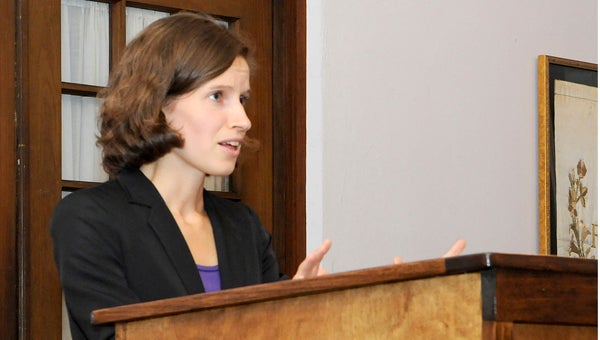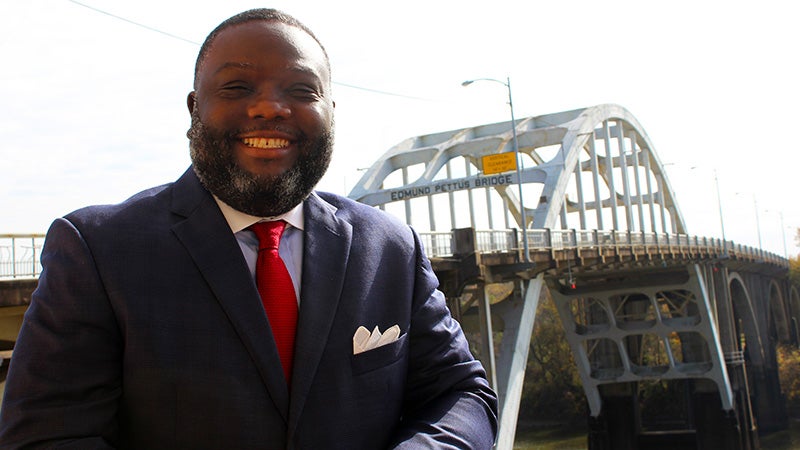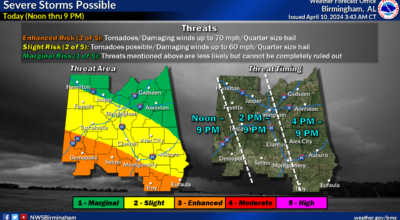Duke grad student focuses on Selma’s history
Published 7:39 pm Wednesday, September 26, 2012

Duke University graduate student Karlyn Forner speaks to the members of the Selma-Dallas County Historic Preservation Society Tuesday evening at St. Paul’s Episcopal Church. --Katie Wood
“You can’t understand Selma; what happens in Selma without understanding agriculture,” Duke University graduate student Karlyn Forner said in her presentation to the Selma-Dallas County Historic Preservation Society Tuesday night. “And you can’t possibly … there’s no such thing as white history and black history. Everyone is intertwined, and if you try to tell the history of Selma and Dallas County without trying to tell both, it’s not going to be a very accurate history, one way or another.”
Forner spoke to a crowd of more than 30 people on the history of Selma and Dallas County during the 1910s.
“A time when cotton was on everyone’s mind,” she said. “It’s fascinating actually, to think about how interwoven all of this was.”
Forner is from Minnesota and has lived in Selma for the past two years. Selma history is something she is truly passionate about.
“The story’s been told so poorly,” she said. “It’s only about 1965, and you can’t understand 1965 without the stuff before and the stuff after.”
Researching the area’s history from 1900 to 2000 is Forner’s primary mission. The thing that surprised her about Selma during the 1910s, she said was the importance of agriculture.
Realizing, “just how important agricultural history is to understanding Selma and Dallas County,” she said. “I knew cotton was important, but I didn’t realize that it structured everything in town.”
This is the second presentation that Forner has made to the society. The first, took place in January of this year and covered Selma-Dallas County history from 1900 to 1909.
“I think there are plans for me to do a whole series,” Forner said. “Chronologically through 2000.”
Nancy Bennett, president of the society, said she was thrilled that Forner was there to speak and able to share her research with the historical society and to “reap the benefits of all [her] hard work.”
Karen Weir, a member of the society, was also glad that Forner shared her research.
“I’m definitely interested in local history,” Weir said. “We have a lot of old records about that time period, so she really answered a lot of our questions, where we weren’t sure how it all related.”
Plans for the next installment of Forner’s historical presentations have not yet been made, but Forner anticipates her next presentation will be in a couple of months.




